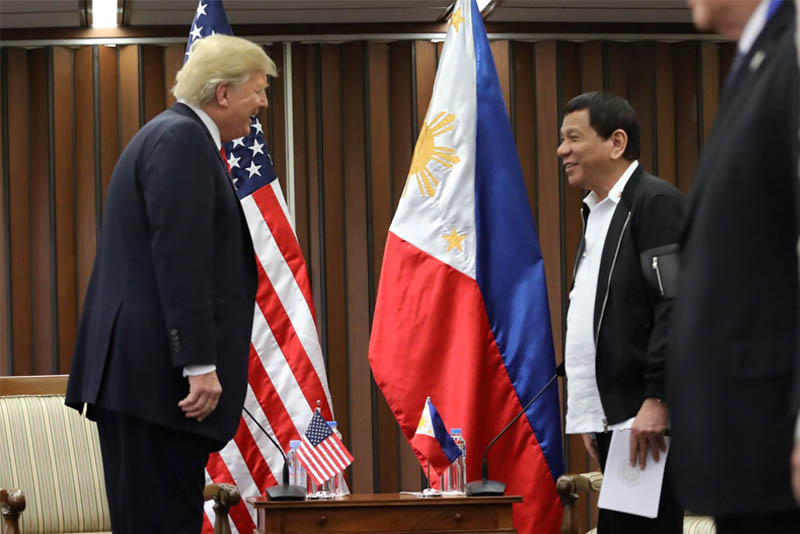CMFR: Filipino, US journalists stand in solidarity vs attacks on press freedom

"Trump and Duterte have mutual admiration for each other. Thankfully, Filipino and American journalists also have ample solidarity with each other," global human rights network said. Presidential Photo/Robinson Niñal Jr., File
MANILA, Philippines — Filipino journalists have expressed support for their counterparts as the American press faces attacks from US President Donald Trump.
Global human rights network IFEX compared the "mutual admiration" of Trump and President Rodrigo Duterte to the solidarity between American and Filipino journalists.
"Thankfully, Filipino and American journalists also have ample solidarity with each other," IFEX said on Twitter.
This statement comes as Trump announces the winners of his self-proclaimed "Fake News" awards, which includes The New York Times, ABC News, CNN, Time, Washington Post and Newsweek.
The Center for Media Freedom and Responsibility noted that the democracy crisis in the US "hobbles our own struggle to fight a populist and authoritarian president."
CMFR, in a tweet, said "[o]ur history with the US gave us the legacy of the First Amendment. Now that the American Press itself is under attack, Filipino journalists stand in solidarity with them and hope to learn from them."
US newspapers, on the other hand, have criticized the decision of the Securities and Exchange Commission to revoke the business registration of online news site Rappler. The SEC decision is not yet final and executory and Rappler has said it will take the matter to court.
READ: New York Times, Wall Street Journal blast Duterte's media assault
In its editorial, The New York Times said that the shutdown order against Rappler was just the "tip" of Duterte's assault on media critics.
The Wall Street Journal, meanwhile, accused Duterte of using the playbook of ousted dictator Ferdinand Marcos to silence media critics and punish political foes.
"Mr. Duterte’s praise for late dictator Ferdinand Marcos and alliance with the Marcos family are clues to his intent," the Wall Street Journal said.
Malacañang, on the other hand, said that the decision of the SEC on Rappler was due to violations of the Constitution and insisted that it was not an attack on press freedom.
"[It] can't be. It's the Constitution that prohibits foreign ownership in mass media," Roque told Philstar.com earlier this week.
Roque added that the law strictly requires that ownership and management of mass media entities must be wholly-owned by Filipinos.
- Latest
- Trending































